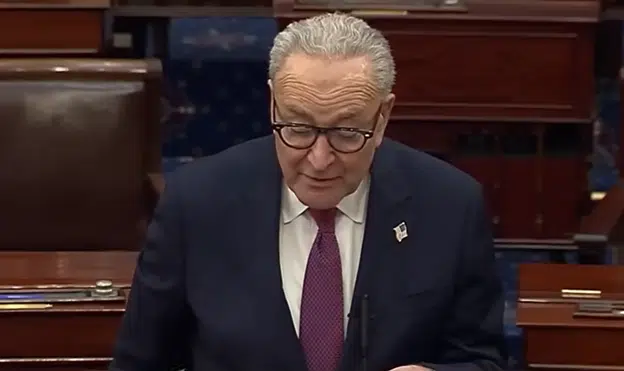Unemployment claims hit an all-time record at 6.6 million last week amid the national lockdown to combat the Chinese coronavirus and save as many lives as possible. 45 states have issued stay at home orders in their states, including 38 that have issued them for the entire state, effectively shutting down their economies. All 50 states have closed schools.
That brings the total of unemployment claims for the past two weeks up to about 10 million, already dwarfing the total job losses in the financial crisis and 2007-2009 recession, which topped 8.3 million in Dec. 2009. Those losses took about three years to be realized as mortgage markets cratered and property values plummeted.
The losses are already bringing what was the lowest unemployment rate in 50 years at 3.5 percent in February, to 4.4 percent in March almost instantaneously and still rising.
So, do pay attention to today’s unemployment report, but the data is incomplete. The household survey is taken in the middle of the month. The one to watch will be next month’s report, as there are still a couple weeks to go before the April numbers will be tabulated by the Bureau of Labor Statistics (BLS).
Even still, in March alone 3 million Americans lost their jobs in the household survey’s measurement of employment. Added to the past two weeks’ data on unemployment claims, that could bring the total job losses from coronavirus related closings up to 13 million and counting.
One mitigating factor that will keep the unemployment rate from rising too will be how BLS counts the civilian labor force. In March, BLS says that it fell by a whopping 1.6 million in March alone even as it said the number of unemployed rose by 1.3 million. You are not counted as unemployed if you are not looking for work. So, if for next month’s report, BLS says those who lost their jobs were temporarily furloughed and are not looking for work, that will keep the reported unemployment rate quite low. Misleadingly low.
For most who are not accustomed to reading these reports from BLS, those two numbers are likely to be confused, so just count with the number of people who had jobs in February but who have lost them since. How high will it go?
Hopefully not too much higher, but the situation is quite grim for employers, who are effectively unable to operate without any revenue or customers. The truth is it could go higher. Much, much higher.
To provide relief, Congress has adopted the $2.2 trillion CARES Act, including $350 billion for 30 million small businesses to meet payroll with forgivable loans for those who cover payroll the extent of the pandemic whose availability begins today, $500 billion for checks to households that Treasury Secretary Steven Mnuchin says should be available in two weeks for taxpayers that used direct deposit for their tax refunds in the past with paper checks following, another $500 billion for critical industries, state and local governments, and also $50 billion of job retention tax credits for larger employers.
Additional lending facilities via the Federal Reserve would allow the $2.2 trillion to be extended up to $6 trillion should the pandemic go on longer to help jumpstart the economy when this is all over.
The bill also expanded unemployment benefits to encourage laid off American workers to stay home to slow the spread of the virus for the extent of the outbreak and to cover their household expenses.
The week that was lost as House Speaker Nancy Pelosi (D-Calif.) held up the relief bill now looms large, but now the ball is in the Trump administration’s court to remove whatever red tape the bureaucracy in Washington, D.C. has in the way to expediting getting the funds to businesses and the American people.
To prevent a long, deep recession the federal government must make these economic incentives to maintain payroll for the duration of the pandemic available now. Aggressive advertising will be needed to bring these programs to everyone’s attention.
Sadly, news outlets reminiscent of Tokyo Rose are undertaking a campaign to demoralize the American people — what else is new? — by reporting that the funds for the American people are being held up even as President Trump and his administration are moving mountains of regulation not just for the economic relief, but also in approving new antiviral treatments and new testing by waiving onerous regulations.
While delays are to be expected in the normal course of business, the determination President Trump and his administration are showing to tackle the overall problem caused by the closures is admirable. If the White House had not worked closely with Congress on this question quickly, the economic damage would likely have been far, far greater.
Now, how deep the recession is will largely be determined by the extent of the pandemic, how long states remain closed and how effective social distancing is. When the pandemic is over, it will be up to the states to reopen as quickly as possible and the emergency benefits encouraging people not to work phased out. The long-term consequences of delay could mean it takes a decade to recover economically from this virus, with much of the damage already done.
Robert Romano is the Vice President of Public Policy at Americans for Limited Government.






